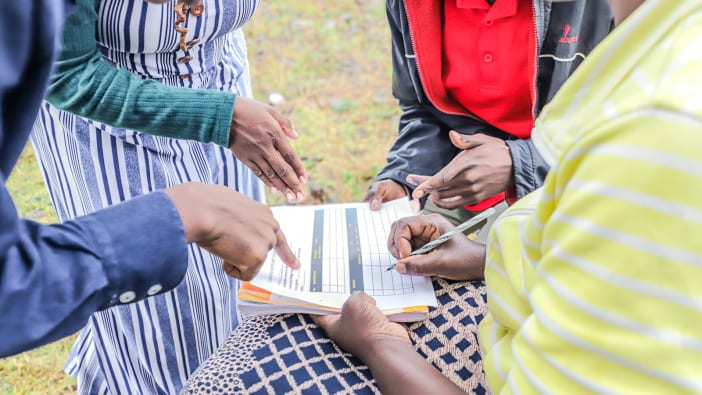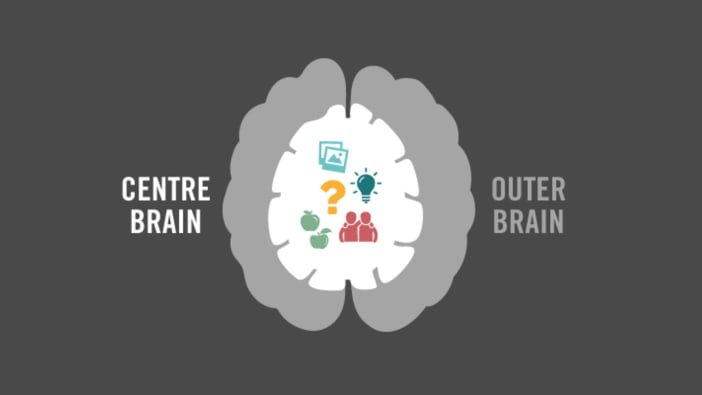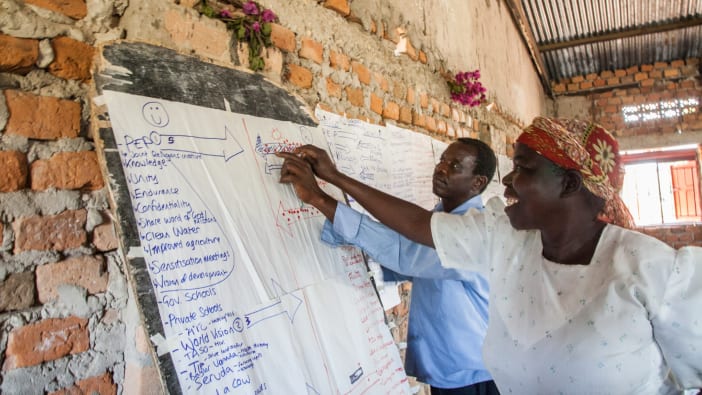Small World Theatre is an educational charity that uses performing arts in community development, advocacy and awareness-raising. They train local theatre groups in participatory drama methods, and work with communities to explore governance, rights and environmental issues.
Using participatory drama methods means that the plays are interactive, developed with community participation and based on local cultural traditions.
Using local situations
Specific local situations and opinions can be put into the performance. Popular stories, proverbs, games or dances can also be used. This helps strengthen a feeling of ownership and helps sustain any social action that the event may bring about.
Facilitating these participatory processes can be challenging, even for experienced actors. Ideas are not always easy to express in words and it is often very difficult for people to share their thoughts publicly. The act of speaking out is an empowerment in itself.
Voters’ rights in Tanzania
Small World Theatre trained a group of Tanzanian actors to carry out research and then act out a drama which would inform people of their rights and encourage them to vote in the parliamentary elections in Tanzania in 2000. The actors were shown how to use realistic life-size female puppets for research in local communities. When people gathered round the puppets, the team asked them questions about the puppet, such as her name, age, marital status and situation in order to create a life story for her. They then asked people questions about her, such as what she did for a living, whether she voted in the last election, why she voted and what were the issues that made her vote, until an imaginary picture of this ‘woman’ emerged.
Audience involvement
The process was then repeated in other shanty towns until over 300 people had contributed to this research into the reasons why women from poor communities had not voted in the previous election. A play was then written, based around the issues people had highlighted in the research and performed.
The actors encouraged community audiences to react to the issues raised in the drama. They used a participatory approach to encourage audiences to solve their own problems. The debate often continued so long that it was difficult for the actors to leave. Each time the play was performed the script was adapted to reflect information and attitudes expressed in the previous performance. A large puppet of Mr Democracy featured as a sort of chairman in the final performance. He was used to share information about practical issues such as where and when to vote.
The author, Bill Hamblett is Artistic Director of Small World Theatre. PO Box 45, Cardigan, SA43 1WT, UK Email: [email protected] Website: www.smallworld.org.uk









